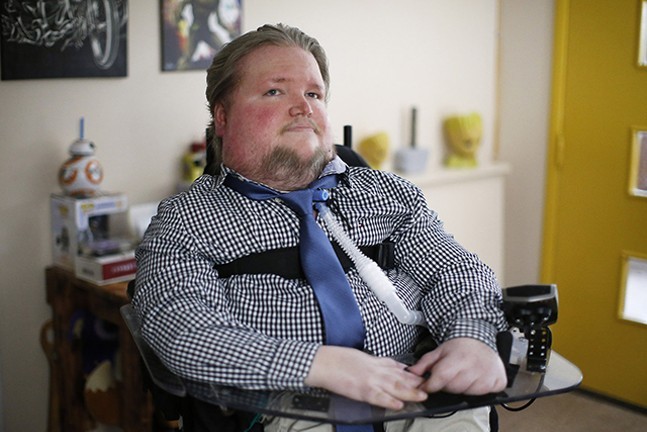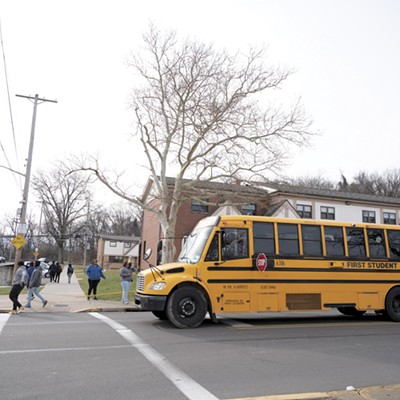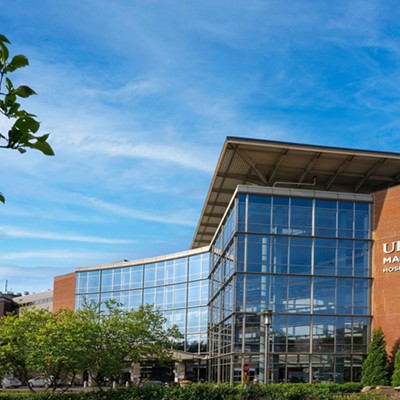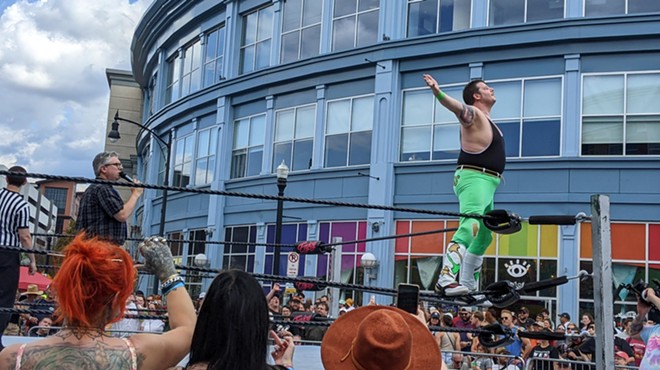Today, it's Steve Spohn, chief operations officer and community outreach director of AbleGamers, award-winning author, and advocate for people with disabilities.
What’s your day-to-day routine like now? What did you do this morning? What are you doing tonight?
There is a really strange mix of newfound fear and uninterrupted normalcy for people with profound disabilities. My day-to-day hasn’t really changed very much. I can’t go out whenever I want and my usual routine of high-end business meetings has been re-situated to Zoom, but otherwise, life continues on. When you’re profoundly disabled, like I am, you spend a lot of time inside anyway.
This morning I got up and met with my AbleGamers peer support specialists as we continue finding ways to support even with a lot of businesses shut down. I proceeded to launch a new video for my new Ask Steve advice series. Tonight it’s business as usual, streaming online on my Twitch channel. Although online entertainers are not considered “essential,” I have been getting a lot of feedback from new fans voicing appreciation for upbeat content during the quarantine. It’s important to be cautious during these scary times, but we don’t have to be all doom and gloom. There can be laughter and levity. Humans are complex and we have complex emotions.
How is AbleGamers running day-to-day now?
AbleGamers has been hampered. We lost a lot of very cool events, including the Steel City Showdown with the Pittsburgh Penguins and Point Park University due to COVID cancellations. I’m lucky in that the city of Pittsburgh is really starting to support people with disabilities. In part due to our new partnership with UPMC and helping patients continue to have fun ways to rehabilitate at Mercy and soon to be Children’s [Hospital]. But the loss of income to the charity is noticeable. Many people are giving donations these days and that’s extremely helpful. Hopefully, companies will continue to step up and fill in the gaps from these lost opportunities.
What's a game you've unexpectedly connected with or reconnected with since the pandemic started?
I can’t say there’s any games that I’ve come across or reconnected with unexpectedly. What’s been a lot of fun was reconnecting with people using games. Like almost all of us, I had some friends go through antisocial periods where they didn’t want to talk at all, some who are still in that place, and others who suddenly wanted to reconnect and catch up on what had happened because we finally had time to talk.
The stigma of video games persists in a way that is unfair to the medium. You can be on one side of the state and I can be on the other, but we can still hang out every day in a videogame. Moderation is key, as it is in all things. However, games can be that bridge to someone you lost along the way.
How, in your experience, do video games help with feelings of isolation during stay-at-home orders and self-quarantine?
Video games aren’t actually about the videogame themselves for multiplayer games. Sometimes you have somebody who really wants to play a certain game or experience a certain story. By and large, multiplayer games bring people together. They allow us to play together apart. If you and I are experiencing the same sounds, sights, experience, or bonding over what’s happening in the videogame itself, what’s different about playing a game together versus hanging out at a baseball game?
I’ve seen videogames be able to connect family thousands of miles apart in situations that would be difficult for them to get together under normal circumstances, let alone in a pandemic. So many people believe videogames are all about violence and time-wasting, but they don’t realize the real power that videogames hold: the power to keep us connected.
As a profoundly disabled individual, being touch starved is sadly normal. Lots of people don't want to accidentally hurt us or fear breaking something.
— Steven Spohn (@stevenspohn) April 26, 2020
But even someone as conditioned to that as I am, of all the things I miss during this pandemic, I miss hugs the most.
You tweeted candidly about how, as a profoundly disabled individual, "being touch starved is sadly normal." Can you elaborate on that? What advice would you give to other profoundly disabled individuals who feel this way?
Yeah, I’ve been doing advocacy in videogames for over 15 years. While I love it, I’m starting to make the turn into my real passion of being an inspirational speaker. You’ll often catch me promoting positivity and wellness on Twitter. My strength is looking at the world from the point of view of someone who has two terminal illnesses and was given a prognosis by Children’s Hospital of Pittsburgh as not surviving past the age of three, and then the age of seven, and then the age of 11… And now I’m in my late 30s.
On that day I was talking about being touch starved. We all know that people are biased toward appearances and that’s especially true for people with disabilities. When the waitress touches your arm, when the bartender gives you a knuckle pound, when your friends hits you on the shoulder for a joke — was kind of minor physical points of contact are often absent for people with extreme physical disabilities. As a quadriplegic, I can’t initiate physical contact, the minor things you don’t even think about that you do with your hands every day. So there’s this combination of people not knowing if you want to be touched and the medical nature of your situation makes them hesitant, as they don’t want to hurt you accidentally.
You know the feeling you get after hugging someone who means a lot to you? In the last couple years, scientists have discovered that there are chemicals and endorphins we release when we experience touching other people and other people touching us. When that doesn’t happen we begin to get what they call “touch starved.”
I know what it’s like to feel alone, like your back is against the wall and you have to fight for everything. Being profoundly disabled, in a wheelchair with a ventilator, and often in the spotlight, it’s made me very sensitive to the world around us. A lot of my life has been sitting and watching, observing people live their lives in ways that I can only dream.
It’s clichéd to say I’m a student of life, but I can tell you that I’ve got a lot of experience under my belt from the perspective not many of us have thought about. I’m doing my best to share that knowledge with the world in the hopes that I can save some people from the mistakes I’ve made and the ones I’ve watched others make. I’m putting up a new video touching on a new topic every week on my new YouTube channel. If you like or need advice, give it a follow.
What are you most looking forward to after quarantines are lifted?
I’m afraid for people like me who are immunocompromised I’m not going to be getting to go back out to major public evidence for some time. But once that happens, I have a great time assisting professors at CMU. I would love to do a TED Talk on appreciating the time we have before it’s gone.
And if anybody knows how to get a hold of Joe Manganiello’s people, tell ‘em I’d love to be friends and play Dungeons and Dragons sometime!















